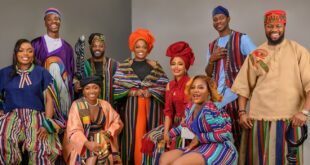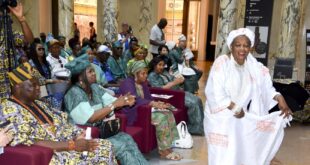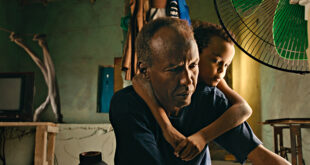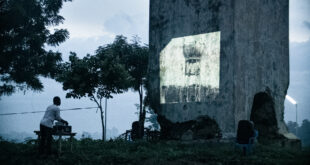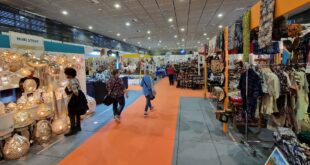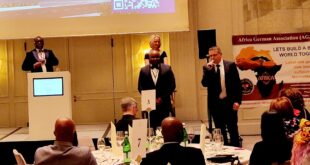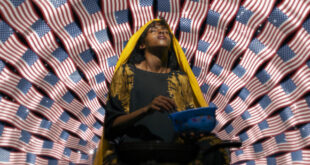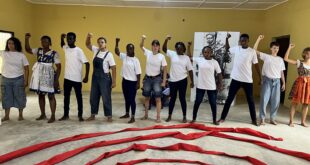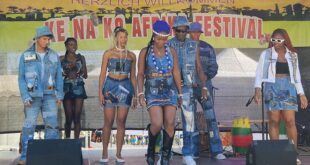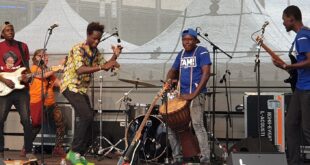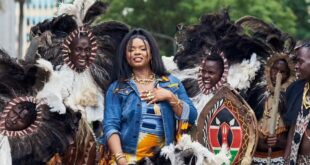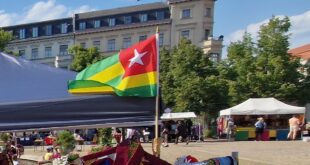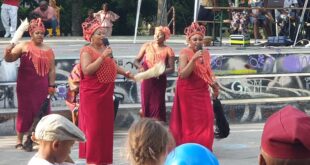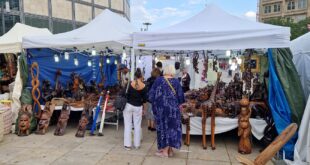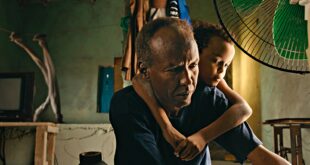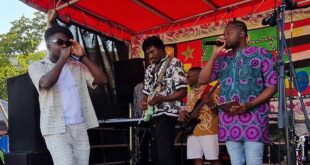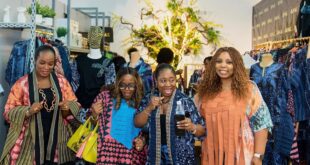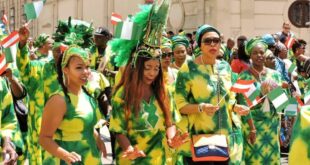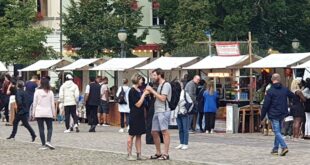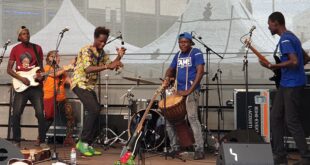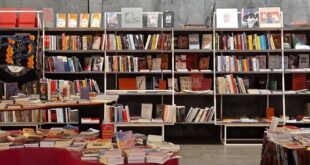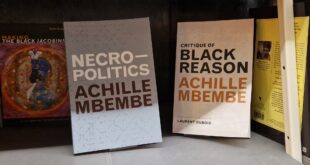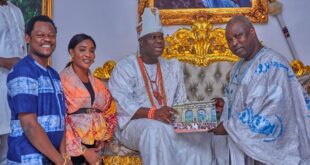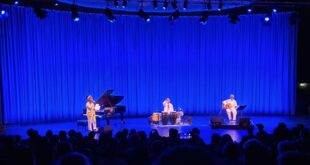Bibi Bakare-Yusuf is co-founder and publishing director of one of Africa’s leading publishing houses, Cassava Republic Press, and the co-founder of Tapestry Consulting, a boutique research and training company focused on gender, sexuality and transformational issues in Nigeria. She has worked as a gender and research consultant in the public, private and development sectors for the BBC, UniFem, ActionAid, eShekels, Central Bank of Nigeria, the European Union and others.
Bakare-Yusuf, who has a PhD in Women and Gender Studies from the University of Warwick, has published many academic papers and regularly presents papers at academic conferences. She sits on the editorial board of a number of influential journals and is the chair of board for The Initiative for Equal Rights, the largest organisation in West Africa devoted to LGBTQ issues. The celebrated publisher is also a Yale World Fellow, a Desmond Tutu Fellow and a Frankfurt Book Fair Fellow.
Bakare-Yusuf, who is a co-curator of the 10th African Literature Festival Cologne (6-9 November), talks about the festival, publishing in African languages, female authors, challenges facing African literature and her favourite books in an exclusive interview with Tina Adomako.
————–
Tina Adomako: You’re a publisher; so your work tool is the written word, is language. What exactly does language mean to you?
Bibi Bakare-Yusuf: Language is our highest cultural asset. When people stop producing in a language, if there are no books, no literature, that language eventually will die out. It’s like when an elderly person dies and we lose the connection to that generation. So many African languages are dying because they have never been written down. That makes me sad.
This November, you are co-curating the African Literature Festival CROSSING BORDERS: translate – transpose – communicate taking place in Cologne. What are the main topics of the festival?
First of all, I want to emphasize that I consider this literary festival a necessity. It is not just an event for a small group of people who have a weakness for literature from the African continent. It‘s really about getting African voices heard. And getting our voices heard is absolutely necessary if we want to save our cultures going into the next century.
We’re also going to focus on multilingualism in the media and in education systems and look at the important role translation plays in preserving literature and culture. Ultimately, the festival is also about showing the richness and beauty of language.
Cassava Republic Press, the publishing house you co-founded with Jeremy Weate in 2006, was created with the aim of bringing African writing to an African audience. Do you publish your authors in local languages?
The authors we publish tend to write in English, and we publish them in English. But writing in English always influences how we see the world or how we imagine it. I would like our company to translate some of the books we are publishing into local languages, especially Hausa, because Hausa for example has a fully developed infrastructure. There is a whole university programme, there are TV and radio stations. So the market is already there. We just need to find ways to get the books out there.
Why Hausa?
Hausa has the advantage of being spoken in more than one country. It’s a language that cuts across borders. It’s spoken in Nigeria, Ghana, Senegal. Mali … There are so many Hausa speakers in the world. Even in China they have a huge Hausa-speaking Diaspora.
More and more African writers are getting published in languages like English and French, which can be read by an international audience. So African stories are getting out into the world. Shouldn’t that be the main focus?
Of course it’s great that we’re hearing more and more African voices and Cassava Republic is contributing to that. But that’s not enough. It is important that we ensure that all the energy and creativity that African writers are bringing into the English language gets taken back into Hausa, Yoruba and other African languages. That’s one of the reasons we need to publish in our languages and translate into our languages.
READ ALSO African literary festival in Germany set for 10th anniversary
Because what happens when you move from one language to another is that that language gets enriched. So the English language is getting richer and richer by the day. Even though England is a small island, they see themselves as the champions of the world. And that is something we often don’t think about.
It explains Brexit, for example. Because although this small island would benefit from the much larger European Union, the English see themselves as the masters of the universe. And the rest of the world has allowed them to see themselves in this way. The vast expanse of the English language all over the globe has also played a role. We have to ensure that other languages survive this English dominance.
That is why we need to write in African languages. All the things we’ve learnt from colonial times and the colonial experience need to be expressed differently. If we continue to write only in colonial languages, it almost fossilises our own languages. They stay put and don’t move on. So, that’s also one of the aims of the festival – to bring this discussion to the table. Because we need to address the matter of our own languages in order to survive into the next century.
Is there a market for African literature in local African languages?
The market for African fiction is expanding. And publishing is moving away from focussing just on education. Because, historically, most publishing in Africa in the past was educational. But in the last 15 years, publishers like Parrésia Press and others have begun producing more and more fiction, and this has created a growing appetite for local stories.
Who would you say reads these new stories?
I think women read more because they need a lot more escapism. Especially in our African patriarchal societies. Ironically, men write and are published more because men are much more confident. A woman with talent takes ten years to finish a book, whereas an untalented man writes a book in a year. That’s because women still get this “I’m not good enough” feeling drummed into them. Men don’t think this way. They say: yes I can. The Ghanaian writer Ama Ata Aidoo, is, in my opinion equally, perhaps even more brilliant than Wole Soyinka or Chinua Achebe, but because she is a woman, the men are much more famous and their work better known.
Who’s your favourite author?
I don’t really have a favourite because there is such a lot of great writing out there. Picking one favourite is like saying, ‘this is the best’ and it sort of devalues the rest. I find this type of categorization to be part of a capitalist framing.
But I will tell you which books I would take if I was banished to a desert island. Toni Morrison’s “Song of Solomon” would definitely come with me. I would also add “A Question of Power” by South African writer Bessie Head and the essay collection “Sister Outsider” by feminist Audrey Lorde. My book pack would also include a White male author, the French phenomenologist Maurice Merleau-Ponty, because, all alone on a deserted island, I would need to have a conversation with someone. And his works are brilliant for that.
Interviewer: Tina Adomako
 THE AFRICAN COURIER. Reporting Africa and its Diaspora! The African Courier is an international magazine published in Germany to report on Africa and the Diaspora African experience. The first issue of the bimonthly magazine appeared on the newsstands on 15 February 1998. The African Courier is a communication forum for European-African political, economic and cultural exchanges, and a voice for Africa in Europe.
THE AFRICAN COURIER. Reporting Africa and its Diaspora! The African Courier is an international magazine published in Germany to report on Africa and the Diaspora African experience. The first issue of the bimonthly magazine appeared on the newsstands on 15 February 1998. The African Courier is a communication forum for European-African political, economic and cultural exchanges, and a voice for Africa in Europe.



